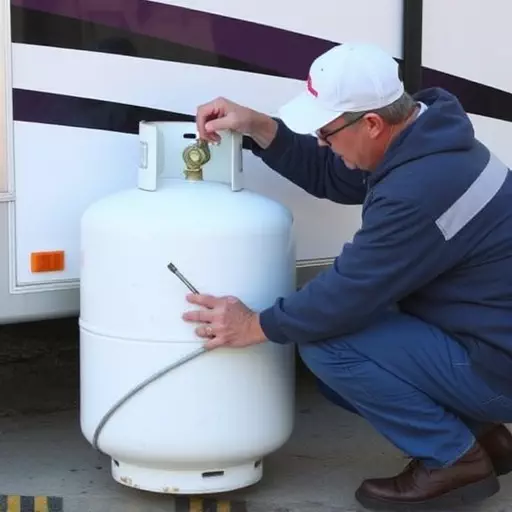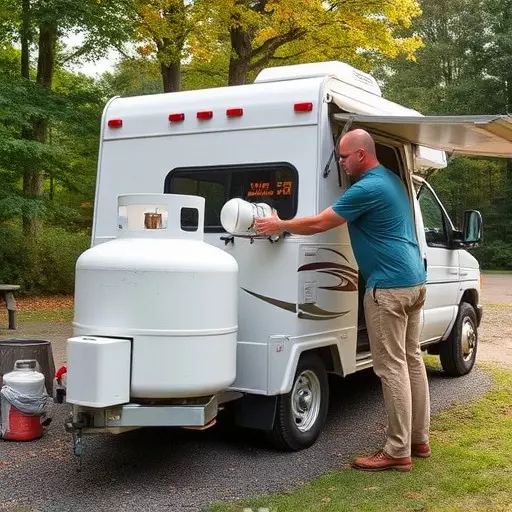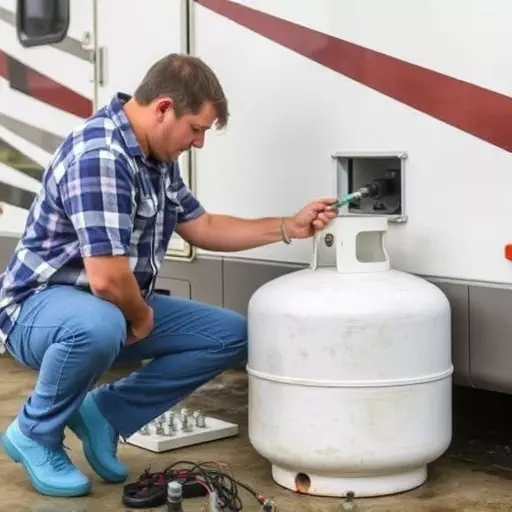Before RV trips from Camden, NJ, inspect propane systems for damage, corrosion, or leaks. Regular visual checks and professional assessments maintain airtight systems. Adhering to propane safety guidelines, including ventilation and avoiding overloading, prevents disasters. Prioritizing these steps ensures safe propane usage, mitigating risks for a confident travel experience.
Before embarking on long trips in your recreational vehicle (RV) from Camden, New Jersey, ensure a safe and secure journey with proper propane system inspection. Understanding the intricacies of your RV’s propane systems is crucial, especially when navigating through diverse landscapes. This comprehensive guide delves into why inspecting propane tanks before use is essential for safe propane usage in RVs, offering a step-by-step process and valuable safety tips to safeguard your adventure.
- Understanding Propane Systems in Recreational Vehicles
- Why Inspect Propane Tanks Before Long Trips?
- Step-by-Step Guide to Inspecting Your RV's Propane Tank
- Propane Safety Tips for a Secure Journey
Understanding Propane Systems in Recreational Vehicles
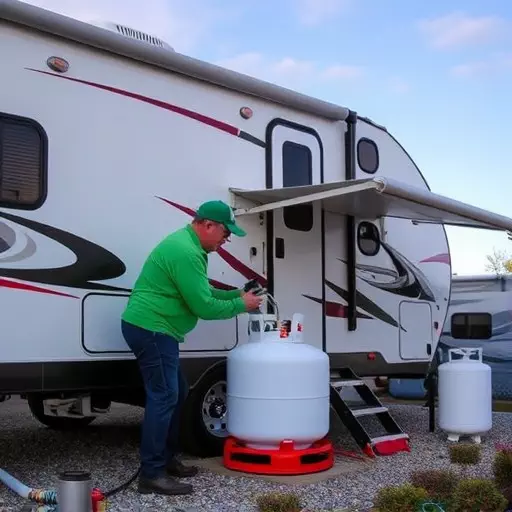
Propane systems in recreational vehicles (RVs) are essential components that require careful consideration and regular maintenance for safe propane usage. These systems, often overlooked but critical, involve a network of tanks, lines, regulators, and appliances designed to supply fuel efficiently and safely. Understanding their function and implementing proper inspection routines before long trips is paramount for RV owners in Camden, New Jersey and beyond.
Before hitting the road, it’s crucial to inspect propane tanks for any signs of damage, corrosion, or leaks. Regular visual checks and periodic professional assessments help ensure that components like tank valves, connections, and fittings remain secure and airtight. Adhering to propane safety guidelines for RVs, including proper ventilation and avoiding overloading, is also vital. By prioritizing these inspection steps, RV owners can enhance propane safety, prevent potential disasters, and enjoy their travels with peace of mind.
Why Inspect Propane Tanks Before Long Trips?
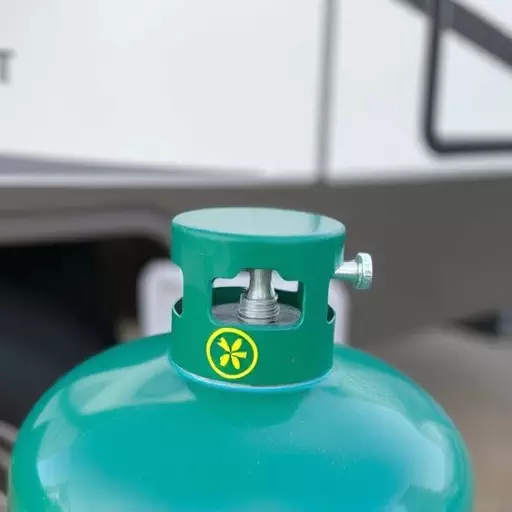
Before embarking on long trips, especially in recreational vehicles (RVs) using propane systems, it’s crucial to perform a thorough inspection. Safe propane usage for recreational vehicles in Camden, New Jersey, and beyond hinges on adhering to stringent propane safety guidelines for RVs. Regular checking ensures that components like propane tanks, lines, and regulators are in optimal condition, minimizing the risk of leaks or malfunctions that could lead to hazardous situations.
An inspection allows you to identify any signs of corrosion, damage, or wear and tear, which are common issues with propane systems over time. By addressing these issues proactively, you can prevent potential disasters and ensure a smooth travel experience. It’s not just about adhering to safety standards; it’s also about maintaining the integrity of your RV’s propane system for continued safe use.
Step-by-Step Guide to Inspecting Your RV's Propane Tank
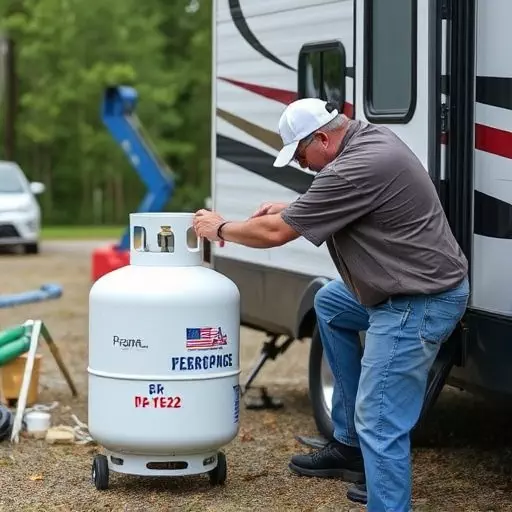
Before hitting the road on a long trip in your recreational vehicle (RV), performing a thorough inspection of your propane system is crucial for safe propane usage. Here’s a step-by-step guide to help you navigate this process, ensuring peace of mind while you travel. Start by examining the propane tank for any visible damage or leaks. Check all connections and valves for tightness; if there are any loose parts, tighten them securely following the manufacturer’s instructions. Next, verify that the tank level is within the recommended range, usually indicated with markings on the tank itself.
Using a pressure gauge, check the propane system’s pressure. It should align with the regulator’s setting, typically between 12 and 15 psi. If the pressure seems off, consult your RV’s owner manual or reach out to a certified technician for assistance. Additionally, inspect the lines and fittings for any signs of corrosion or damage. Remember, these checks are essential in Camden, New Jersey, or anywhere else you travel, as propane safety guidelines for RVs emphasize regular maintenance and inspection to prevent accidents.
Propane Safety Tips for a Secure Journey

When preparing for long trips in recreational vehicles (RVs) powered by propane, prioritizing safety is paramount. Following comprehensive inspection procedures and adhering to safety guidelines are essential steps for a secure journey. Start by inspecting propane tanks for any signs of damage or corrosion. Ensure all connections are tight and secure, as loose fittings can lead to dangerous leaks. Regularly check the tank’s pressure gauge to monitor levels, preventing overfilling and potential explosion risks.
Implementing safe propane usage practices in Camden, New Jersey, or beyond involves using only authorized and certified appliances. Avoid overheating by maintaining proper ventilation throughout the RV, especially during cooking or heating operations. Keep a close eye on open flames and ensure they are completely extinguished when not in use. Store propane cylinders securely, upright, and away from heat sources or ignition points to mitigate fire hazards. Regular maintenance and timely repairs are crucial, ensuring your propane system operates efficiently and safely throughout your travels.
